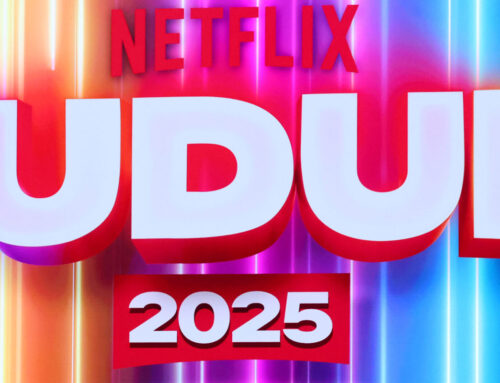One in Five Americans Turn to Social Media Influencers for Their News
In the heat of the 2024 election, news influencers seemed to be everywhere. At both the Republican and Democratic conventions this summer, content creators had dedicated spaces—closer to the audience and stage than the booths assigned to traditional journalists. They not only covered the events live with privileged access but also interviewed the candidates and hosted fundraising initiatives for them.
But until now, it’s been difficult to gauge the size and characteristics of this new wave of news providers. A unique Pew Research Center study sheds light on both the makeup of the news influencer universe and its audience. The project examines 500 popular news influencers and the content they produce, derived from over 28,000 social media accounts.
The results are clear: About one in five U.S. adults (21%) say they regularly get news from news influencers on social media, according to a summer 2024 survey of 10,658 Americans. This is especially common among younger adults: 37% of those aged 18 to 29 say they regularly get news from influencers. However, there are minimal differences between Republicans and Democrats on this issue.
Among Americans who get news from influencers, most (65%) say news influencers have helped them better understand current events and civic issues. Seven in ten say the news they get from influencers is at least somewhat different from the news they get from other sources. Far fewer (31%) feel a personal connection to a news influencer.
These Americans also report receiving a variety of information, ranging from basic facts and opinions to funny posts and breaking news. When it comes to opinions, most say they see an even mix of opinions they agree and disagree with (61%), but far more say they mostly agree with what they see (30%) than mostly disagree (2%).
“News influencers became sources of authority to their audiences about what’s happening in the world,” Columbia professor Basil Smikle told CNBC. Part of the reason, the expert says, is convenience: “You have access to all the information you need from your phone. So because social media is pushing information to you, the ease with which you have information at your fingertips is difficult to ignore.” But, he adds, “When you’re getting information through social media, how do you know how original that information is? It’s very hard to verify that, and unfortunately, the algorithm doesn’t care. It just keeps sending you the same kind of information.”
Around two-thirds of the 500 accounts Pew identified as “news influencers” for the study were active across multiple platforms between July and August. While previous research found that more women consume news on sites including Facebook, Instagram, and TikTok than men, this survey suggests a clear majority of news influencers are men (63%). Social media site X remained the most popular, with 85% of influencer respondents reporting they were active there. Meta-owned Instagram came in second, while YouTube, the most popular platform for Gen Z (people born between 1997 and 2012), ranked third. TikTok was below Meta’s Threads and Facebook, as the sixth-most popular platform among content creators.
Source: Pew Research
Share:
In the heat of the 2024 election, news influencers seemed to be everywhere. At both the Republican and Democratic conventions this summer, content creators had dedicated spaces—closer to the audience and stage than the booths assigned to traditional journalists. They not only covered the events live with privileged access but also interviewed the candidates and hosted fundraising initiatives for them.
But until now, it’s been difficult to gauge the size and characteristics of this new wave of news providers. A unique Pew Research Center study sheds light on both the makeup of the news influencer universe and its audience. The project examines 500 popular news influencers and the content they produce, derived from over 28,000 social media accounts.
The results are clear: About one in five U.S. adults (21%) say they regularly get news from news influencers on social media, according to a summer 2024 survey of 10,658 Americans. This is especially common among younger adults: 37% of those aged 18 to 29 say they regularly get news from influencers. However, there are minimal differences between Republicans and Democrats on this issue.
Among Americans who get news from influencers, most (65%) say news influencers have helped them better understand current events and civic issues. Seven in ten say the news they get from influencers is at least somewhat different from the news they get from other sources. Far fewer (31%) feel a personal connection to a news influencer.
These Americans also report receiving a variety of information, ranging from basic facts and opinions to funny posts and breaking news. When it comes to opinions, most say they see an even mix of opinions they agree and disagree with (61%), but far more say they mostly agree with what they see (30%) than mostly disagree (2%).
“News influencers became sources of authority to their audiences about what’s happening in the world,” Columbia professor Basil Smikle told CNBC. Part of the reason, the expert says, is convenience: “You have access to all the information you need from your phone. So because social media is pushing information to you, the ease with which you have information at your fingertips is difficult to ignore.” But, he adds, “When you’re getting information through social media, how do you know how original that information is? It’s very hard to verify that, and unfortunately, the algorithm doesn’t care. It just keeps sending you the same kind of information.”
Around two-thirds of the 500 accounts Pew identified as “news influencers” for the study were active across multiple platforms between July and August. While previous research found that more women consume news on sites including Facebook, Instagram, and TikTok than men, this survey suggests a clear majority of news influencers are men (63%). Social media site X remained the most popular, with 85% of influencer respondents reporting they were active there. Meta-owned Instagram came in second, while YouTube, the most popular platform for Gen Z (people born between 1997 and 2012), ranked third. TikTok was below Meta’s Threads and Facebook, as the sixth-most popular platform among content creators.
Source: Pew Research









